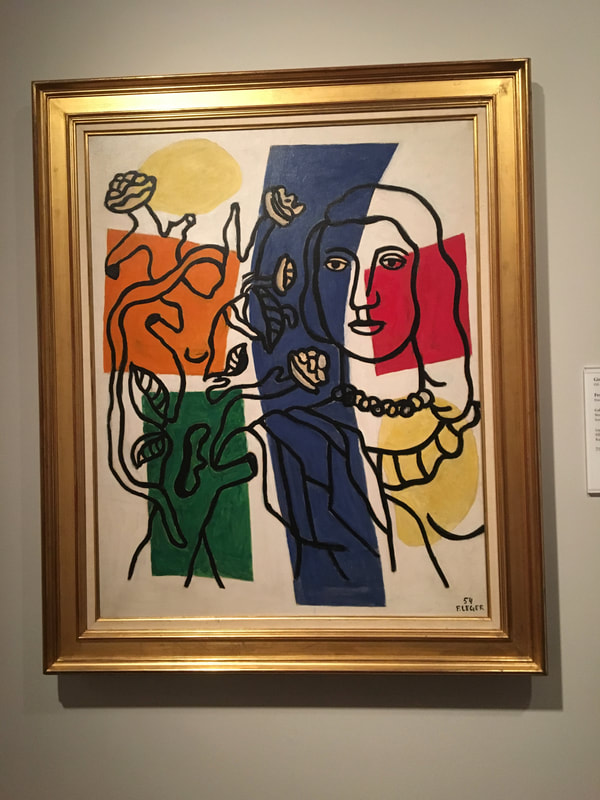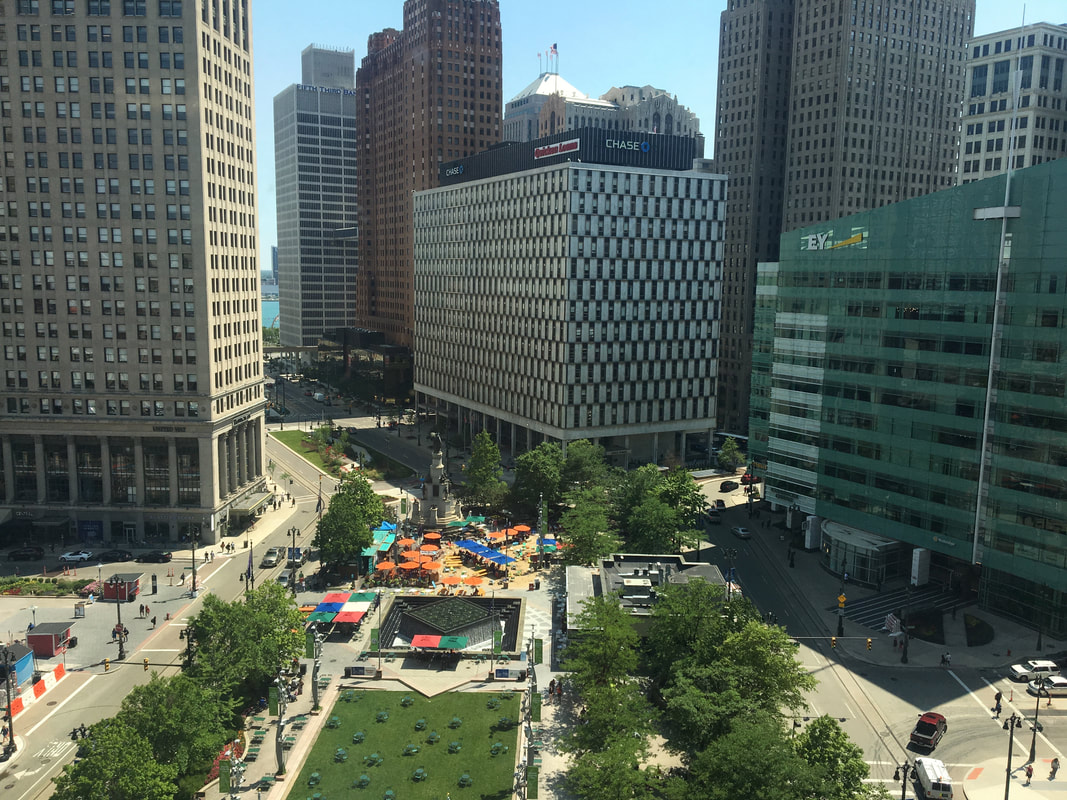A few weeks ago, I went to the Detroit Institute of Arts, and to be honest, I found it quite boring. After spending no more than thirty minutes walking briskly through the art-lined hallways, I retreated to a bench. This past Saturday, a friend of mine came to visit and because of the 95º weather and near 100% humidity, I suggested we find indoor activities. To my surprise, my friend wanted to go to the DIA. I hesitantly agreed to her request but warned her of its mediocrity. However, while walking through the museum for a second time, I was more intentional with observing the art and reading the informational labels next to it. I was shocked at how much I missed the first time: A Joseph Alber’s square, a chair designed by Otto Wagner, and an entire exhibit on 18th century American furniture. I observed art that challenged conventions of coloring in the lines (See photo below) and romantic tradition. By taking the time to truly observe the art, my experience at the DIA was much more worthwhile and meaningful.
My experience at the DIA is an example of how being authentic makes life more fulfilling. I had another encounter with authenticity this past Friday while touring Quicken Loans and their expanse of buildings in downtown Detroit. It was truly incredible to see how one family of corporations (one of which is Bedrock) had a dream to transform the city into a hub of innovation and a hotspot for millennials; they most certainly have achieved that dream. We saw a basement with large vaults converted into conference rooms as well as modernized office spaces with perfect views of Campus Martius Park, as seen in the photo below. While observing a model of the city that highlighted each building owned by Bedrock, I began to grow weary of the sheer amount of space owned by the family of corporations. The more I walked around the city, the more I saw the iconic Quicken Loans logo on signs and The Bedrock “B” atop buildings.
It is easy to say that Quicken Loans and Bedrock have transformed the city of Detroit because they rightly have done so. What once was an empty ghost town that numerous Detroiters told me no one dared to visit is now an incredible conglomeration of youth, innovation and pride. But to be authentic—to truly consider the work of Quicken, one begins to see an oligarchy forming right in the heart of downtown. It’s like the corporation is playing a game of monopoly; they continue to buy property and pass go, collecting money and adding their name to whatever entity comes next; they’ve already claimed the Qline, so it will be interesting to see what’s next. I cannot discredit the immense role the corporation has had in downtown, but upon deeper reflection, I feel a sense of apprehension for the future of Detroit: What happens when Bed Rock and Quicken lose interest in downtown? What if other corporations want to move to the city but can’t because of Quicken’s monopoly? To consider these challenging questions, one must observe more than just the beach in the heart of downtown or the magnificent art deco skyscrapers. It requires authenticity: engaging with the community and looking beyond surface level. When we are intentional, we uncover hidden truths behind the conventions of everyday. Whether they lead to a newfound appreciation of art or an uncertainty of a corporation, insightful observations lead to a deeper understanding of the environment around us.
My experience at the DIA is an example of how being authentic makes life more fulfilling. I had another encounter with authenticity this past Friday while touring Quicken Loans and their expanse of buildings in downtown Detroit. It was truly incredible to see how one family of corporations (one of which is Bedrock) had a dream to transform the city into a hub of innovation and a hotspot for millennials; they most certainly have achieved that dream. We saw a basement with large vaults converted into conference rooms as well as modernized office spaces with perfect views of Campus Martius Park, as seen in the photo below. While observing a model of the city that highlighted each building owned by Bedrock, I began to grow weary of the sheer amount of space owned by the family of corporations. The more I walked around the city, the more I saw the iconic Quicken Loans logo on signs and The Bedrock “B” atop buildings.
It is easy to say that Quicken Loans and Bedrock have transformed the city of Detroit because they rightly have done so. What once was an empty ghost town that numerous Detroiters told me no one dared to visit is now an incredible conglomeration of youth, innovation and pride. But to be authentic—to truly consider the work of Quicken, one begins to see an oligarchy forming right in the heart of downtown. It’s like the corporation is playing a game of monopoly; they continue to buy property and pass go, collecting money and adding their name to whatever entity comes next; they’ve already claimed the Qline, so it will be interesting to see what’s next. I cannot discredit the immense role the corporation has had in downtown, but upon deeper reflection, I feel a sense of apprehension for the future of Detroit: What happens when Bed Rock and Quicken lose interest in downtown? What if other corporations want to move to the city but can’t because of Quicken’s monopoly? To consider these challenging questions, one must observe more than just the beach in the heart of downtown or the magnificent art deco skyscrapers. It requires authenticity: engaging with the community and looking beyond surface level. When we are intentional, we uncover hidden truths behind the conventions of everyday. Whether they lead to a newfound appreciation of art or an uncertainty of a corporation, insightful observations lead to a deeper understanding of the environment around us.


 RSS Feed
RSS Feed
